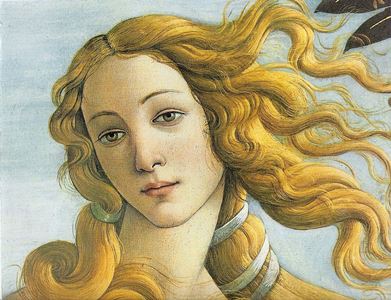Today Charlene Ball, author of the debut novel Dark Lady, is stopping by with a post on the family background and heritage of her heroine, Emilia Bassano Lanyer. Dark Lady was published on Tuesday by She Writes Press, and I'm looking forward to reading it. Welcome, Charlene!
~
Emilia Bassano Lanyer’s Family: Court Musicians and Secret Jews
By Charlene Ball
Emilia Bassano Lanyer, the main character in my novel Dark Lady, was a member of the Venetian Bassano family of Court musicians and instrument makers who came to England from Venice at the invitation of King Henry VIII. They moved from the small Italian town of Bassano de Grappa to Venice, where they became musicians for the Doge.
Emilia’s father Baptista Bassano was the youngest of six brothers who emigrated from Venice (an older brother remained in Italy). The Bassanos lived at first in the Charterhouse in London (it still stands off Aldersgate Street north of the Barbican). The Charterhouse was emptied of its monks when Henry VIII took over the monasteries. Emilia’s mother was Margaret Johnson, possibly related to the Robert Johnson who composed some songs for Shakespeare’s plays. Baptista and Margaret had four children, but two boys died in childhood, and Angela, Emilia’s older sister, married Joseph Holland in her teens and disappeared from the records.
The Bassanos may have been conversos, or secret Jews, who converted to Christianity and outwardly conformed to the Church of England while observing their religion in secret. If they were secret Jews, they may have come originally from Spain or Portugal when the Jews were expelled in 1492. Officially no Jews had lived in England since they were expelled by Edward I in 1290. But there were Jewish families living in London before, during, and after the reign of Elizabeth I.
Being from a family of musicians, Emilia would have been surrounded by music from birth. She would have learned to play the lute, as many gentlewomen and ladies did, and probably also the recorder, since her family was known for the Court recorder consort (a consort is a small band made up of the same kind of instruments) and for making recorders and other wind instruments.
Emilia married her cousin, Alfonso Lanyer (alternative spelling Lanier). His mother was Emilia’s first cousin, and his father was from a French Huguenot family of musicians. The most famous member of this family is Nicholas Lanier, the 17th-century composer. Nicholas is a child in Dark Lady.
The historical Alfonso could have been either older or younger than Emilia. I have made him younger and given him the nickname of “Alfi.” Alfonso became a member of the Bassano Consort, either because his mother, Lucretia, was a Bassano or because of his marriage to Emilia.
Music, therefore, would have pervaded Emilia Bassano Lanyer’s life. And so would ties to her family. Her Jewish heritage would likely have been both a bond with her Bassano family and a source of struggle, since she was brought up a Protestant and was bound by ties of love and friendship with her Protestant mentors Suzan Bertie, Countess of Kent, and Margaret Clifford, Countess of Cumberland. Dark Lady portrays how a woman with such conflicting loyalties manages to negotiate her way among those she loves.
If you’d like to learn more, here are some resources I used:
Katz, David S. The Jews in the History of England: 1485-1850. Oxford: Clarendon: 1984.
Lasocki, David, with Roger Prior. The Bassanos: Venetian Musicians and Instrument Makers in England, 1531-1665. Aldershot, England: Scolar, 1995.
Prior, Roger. “A Second Jewish Community in Tudor London.” Jewish Historical Studies 31 (1988-90): 137-152.
Ruffatti, Alessio. “Italian Musicians at the Tudor Court – Were They Really Jews?” Jewish Historical Studies 35 (1996-1998): 1-14.
~
Charlene Ball holds a Ph.D. in comparative literature and has taught English and women’s studies at colleges and universities. Although she has written nonfiction, reviews, and academic articles, writing fiction has always been her first love. She has published fiction and nonfiction in The North Atlantic Review, Concho River Review, The NWSA Journal, and other journals. She is a Fellow of the Hambidge Center for the Arts and held a residency at the Wurlitzer Foundation of New Mexico. She retired from the Women’s Studies Institute (now the Institute for Women’s, Gender, and Sexuality Studies) at Georgia State University in 2009. She lives in Atlanta with her wife, author and bookseller Libby Ware. Visit her online at her website or Facebook.









